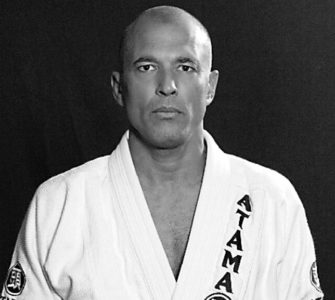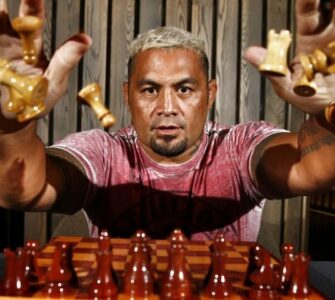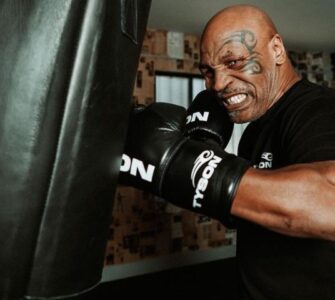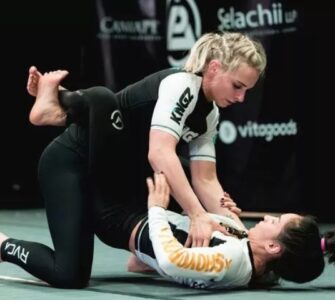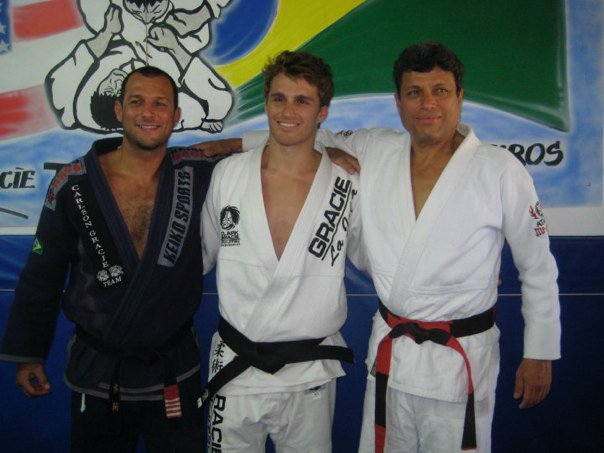
Clark Gracie in an in depth interview with Grapplearts.com covered a wide range of topics from his father Carley Gracie being the first Gracie to come to the US, he also talked about how he transitions to the no gi game:
Stephan: Your father Carley Gracie. When did he come to the US?
Clark: He came in 1972. And I think about 10 years later he started inviting his cousins and his brothers to come, and from there they started the boom. And years later, the UFC started which is when it really became popular.
Stephan: Was your dad teaching Jiu-Jitsu in 1972?
Clark: Yeah. He actually came and he first went to New York. I’m not sure if he taught much in New York, but I do know that after that he went to Virginia and he was teaching the marines in Quantico in. And he would always tell stories about how he would look up Jiu-Jitsu schools in the Yellow Pages and visit them, or even Judo schools – any kind of martial arts – but especially Jiu-Jitsu schools. He noticed that the Jiu-Jitsu in North America was not the same Jiu-Jitsu that he had known in Brazil. So…
Stephan: It was more of the Japanese traditional Jiu-Jitsu here at that time….
Clark: Yeah. Exactly. It was the traditional style. Similar in a lot of ways but still a lot different because, you know, the family was able to modify it and it actually became a completely different martial art. So people would say, ‘You do Jiu-Jitsu?‘ But it wasn’t the same as what we do. Then thought, ‘Well I have to think of a different name for it because people don’t see it as a same thing.’
So he started calling it “Gracie Jiu-Jitsu”, and that was the beginning of that term “Gracie Jiu-Jitsu” back in those days. He started to teach around that time. Eventually went to Florida, California. In California, he met my Mom and that’s where I was born and grew up most of the time.
Stephan: Now calling it “Gracie Jiu-Jitsu”, that ended up leading to some problems within the family, did it not?
Clark: Well yeah. There were some people that came after to the US – his family and some of my Dad’s cousins – who tried to put a trademark on the name so no one else could use it, the term “Gracie Jiu-Jitsu”. And my Dad said ‘What’s going on – I was the first one who created this name. You can’t, you know, stop the family from using this name. This is a family name.‘
So there was a little bit of a dispute going on. I remember that throughout my youth, in my adolescence,my dad was constantly going to court regarding that issue. It was kind of stressful, I guess, but eventually, my Dad won that lawsuit and the name became free for the family to use again. But there was a time when a lot of the family members was not using the name “Gracie Jiu-Jitsu” because of that trademark that was put on by my Dad’s cousin, Rorion.
Stephan: So your Dad wasn’t trying to just use the name for himself? Anybody in the family can now use it?
Clark: Yeah. He was trying to free it up for the rest of the people in the family, you know. He was really sad to see the patriarchs in the family, like Carlson, you know, and his nephews, like Rolles, Renzo and these guys coming to the US teaching Jiu-Jitsu unable to use the name “Gracie Jiu-Jitsu”. A lot of people were forced to use “Brazilian Jiu-Jitsu”. That’s probably why the big boom and the name “Brazilian Jiu-Jitsu” became so popular instead of “Gracie Jiu-Jitsu”, because a lot of the students of the family were not allowed to use the name “Gracie Jiu-Jitsu” and not even the family. So you know, there was a little bit of a separation. But really, it’s the same thing, and eventually, the name was freed up, was allowed to become used by the family again.
About adapting to the No Gi game:
Stephan: You’ve done well in both gi and no gi competition. So how do you change your game? The one time, I trained with you we did a lot of spider guard stuff, which a lot of people have difficulty translating over to no gi. Clearly spider guard is something you’re really good at with the gi. But then how do you change your game when you’re going from gi to no gi, or from no gi to gi?
Clark: I remember this year – around the time when I was training for Pan Am’s – there were some guys that came in and they just went straight to no gi. You know, it is different. You have to get used to making different grips, going for different points of control, different ways to dominate your opponent and moving around.
So it is a transition, but it’s not too bad. Usually after about a couple of weeks – a month usually at the most – I’m ready to go. I’ve made that transition from gi to no gi or vice versa. It’s just looking for different ways to control your opponent. Talking about guard, I’ll use more of an X-guard, and also playing guard a little closer than I would with the gi when you can ride on the grips and play a little bit more with distance.
Stephan: So a tighter game…
Clark: Probably a little bit tighter. One thing that I’ve found which helps a lot with no gi is when you just grab somebody, you can’t really maintain that grip for very long. With the gi, you can make a strong grip and hold it usually for quite a while and give your partner a hard time.
But in no Gi what I try to do is try to put my hands together, make that gable grip, and lock up around the opponent. That’s really what’s going to keep you tight and give you more control. Every other grip is very temporary. So I always try to get my hands together, palm to palm. That’s helped me a lot.
Stephan: Do you train in wrestling or judo separately, in addition to your Jiu-Jitsu? How do you handle the whole takedown component of the game?
Clark: We have a lot of wrestlers in San Diego. One of my best training partners, Brandon Magana is a black belt. He’s also a really good wrestler, and we always have some wrestlers around, so we get some good wrestling. We also have some good judo guys too. I enjoy the wrestling, although the majority of the time we’re training on the ground because that’s where more of the fight takes place. But I do enjoy the wrestling as well.


